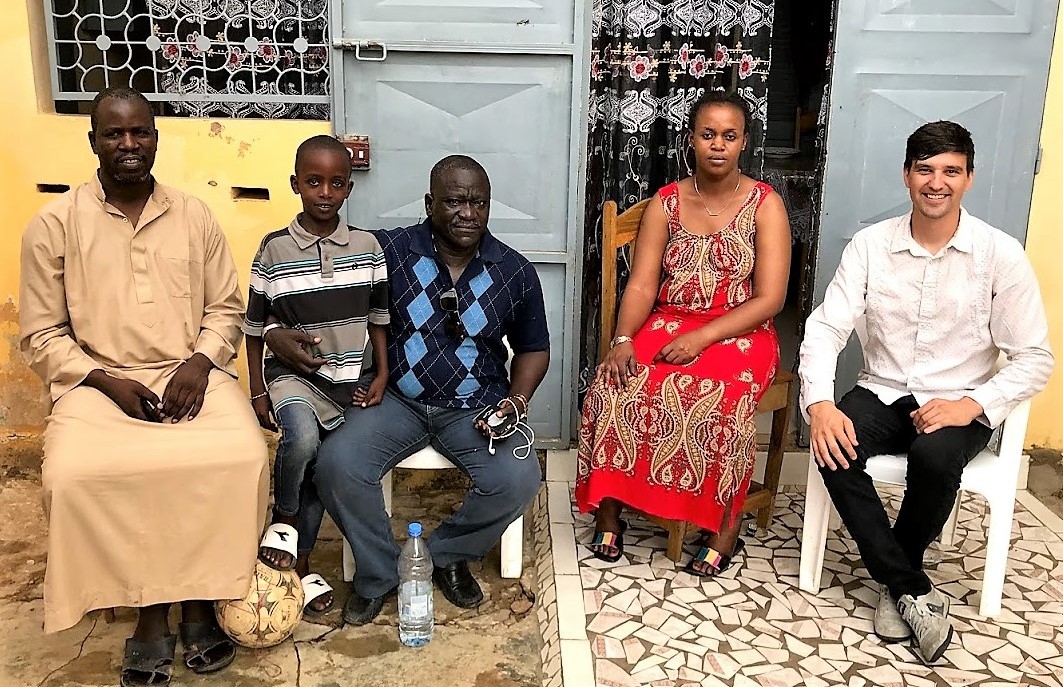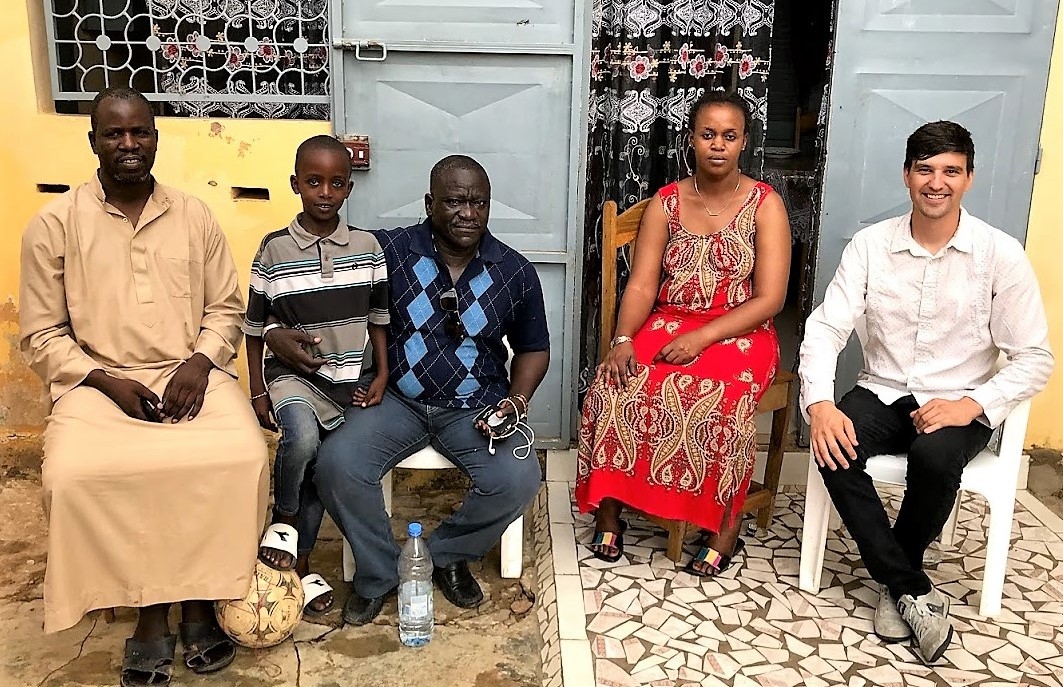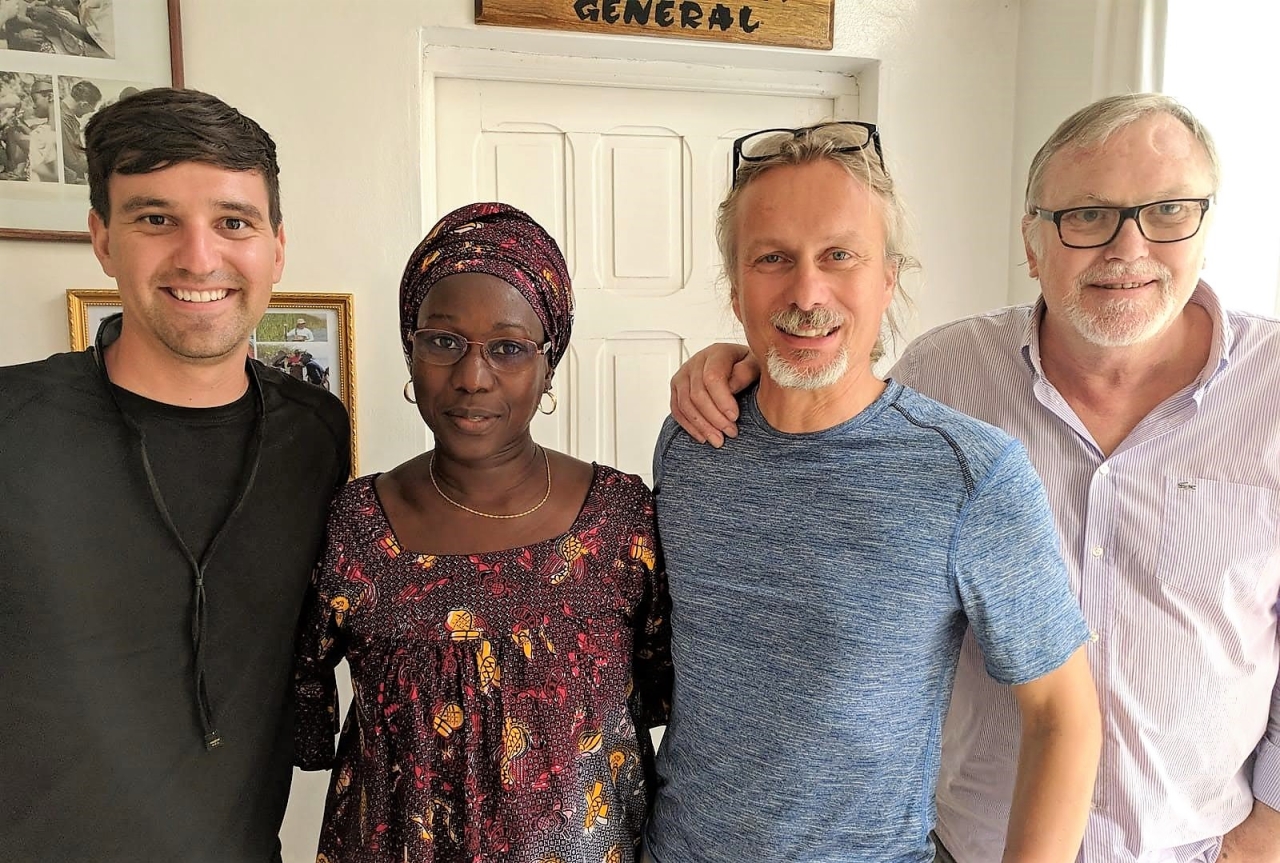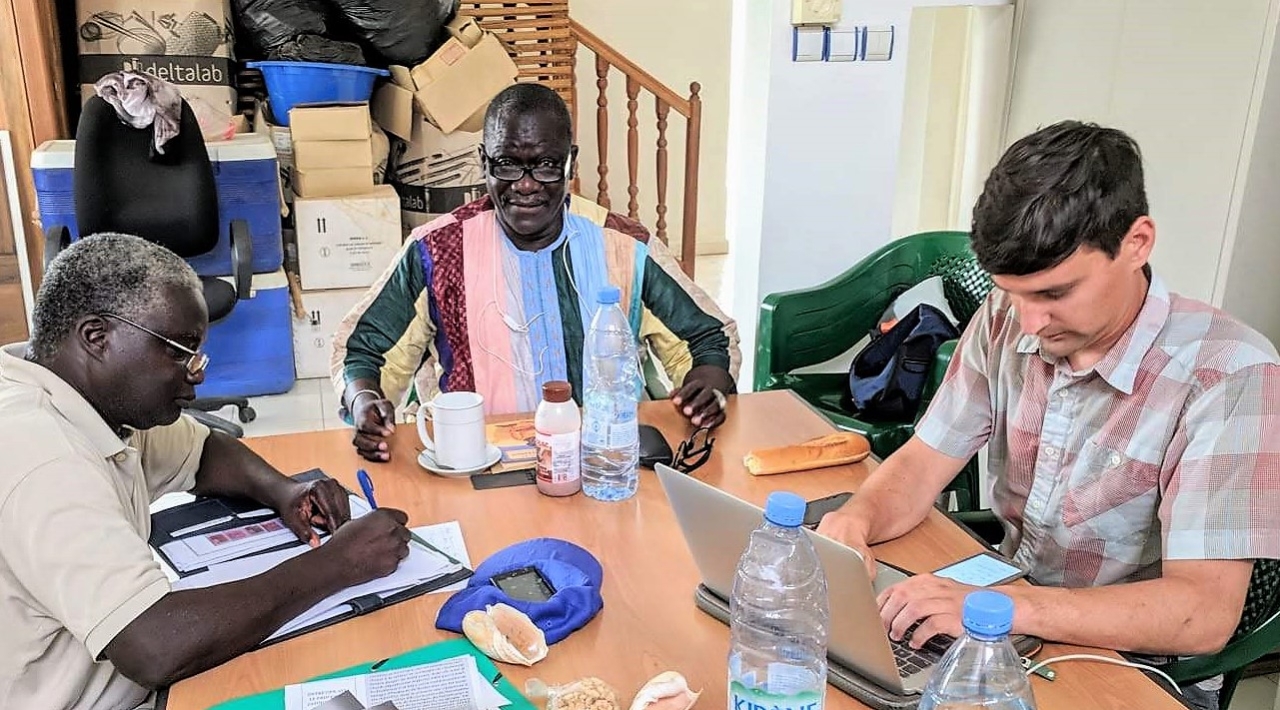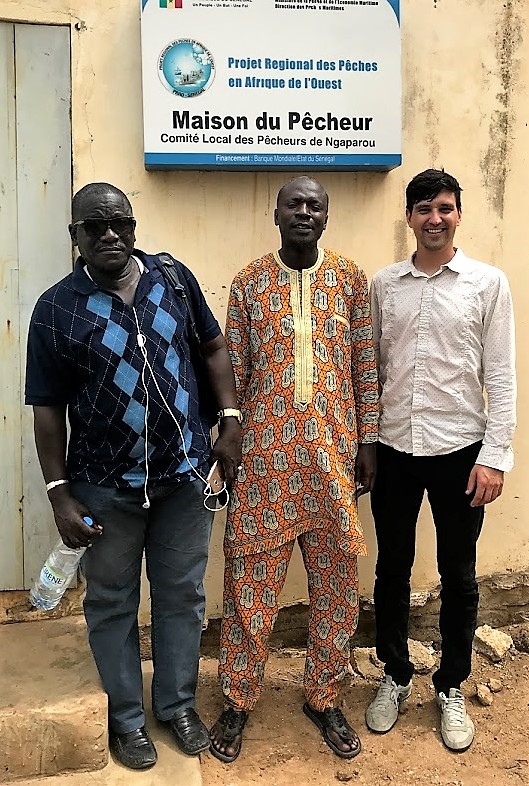FMS Spotlight: Tyler Higginson
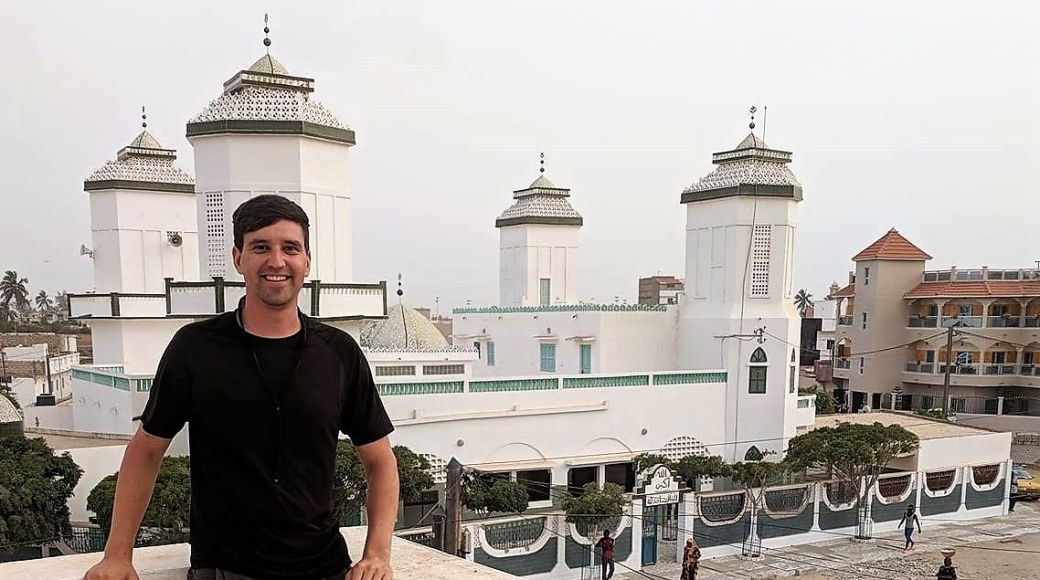
“Doing development” work, for me, implies continually questioning and improving my perceptions of how and why the work should be done. During the two-week FMS training this past January, I was able to glean from the experiences of the instructors and learn from their practice.
There are of course some start-up tools and practical knowledge that I have been able to apply, but beyond that I find myself trying to emulate the humble yet driven approach that each of the instructors exhibited. Their examples are a constant reminder to me that this venture is not about me, and balancing the drive to make it work with the necessary patience to do it properly is daily endeavor.
Currently, I am an FMS Fellow for the Hopkins Marine Station of Stanford University, where I am working on the startup of a prawn hatchery in Saint Louis, Senegal. For years, the Stanford research team has been studying the re-introduction of prawns into the Senegal River basin as a way of addressing a parasitic disease. As the research wraps up, those involved wanted to see an enduring application of their findings. I’ve been working with them to design a business model for a commercial hatchery which both sells prawns to the market as well as provides prawns for continued public health intervention.
“My biggest takeaway from the FMS training was that those of us practicing “social impact” have an immense amount of responsibility and opportunity before us.”
Being in Senegal and working with local partners in the market has made all the difference in designing the business for success. Working with the appropriate stakeholders and truly understanding what value you are actually providing as an entity is probably the most valuable thing I have learned from FMS that I am applying here and is something that I hope to always carry with me in my career.
My biggest takeaway from the FMS training was that those of us practicing “social impact” have an immense amount of responsibility and opportunity before us. With the impact ecosystem starting to take off, we are in a position to define for ourselves how to go about influencing how impact is defined and delivered. With much of impact subject being challenged, it is us, those involved, who will make informed decisions about who and what is included in this approach, which will ultimately determine the extent of its success or failure as a positive force in addressing the most pressing global issues. The FMS training was largely a challenge to develop and apply not only the necessary skills, but the personal ethics and approach in order to have enduring impact.
My takeaways from each class:
- An Overview of Social Enterprise and Impact Investing Management (Ross Baird, Village Capital)
- Ross, using Village Capital as a proxy, discussed the basics of impact investing and some of the key elements of what makes a social enterprise viable, especially from a Venture Capital lens. He dove deeper into the key elements of his new book- The Innovation Blind Spot. What I got out of it was a fuller perspective on the drivers and problems of two-pocket thinking; what we do for a living, and what we care about. This has helped me to think more critically about what constitutes “social impact” and how to navigate my career around that ethic.
- Global Venture Ecosystems (Ross Baird)
- Here, Ross went into detail about the different players, sectors and jobs that surround the impact space. He gave practical advice about how to identify the roles that we might be interested in, and how to engage with the decision-makers in order to be introduced as a candidate for such positions. I learned that simply having an orientation for social impact will not be enough, and that you have to demonstrate hard skills and the ability to acquire the skills necessary to do the job well.
- Impact Capital Stacks and Management (Eric Maltzer, Medora Venture)
- Eric discussed the basic tenets of impact investing, and the various funds and capital stacks used to achieve different results, based on the investment and impact goals. What I took away from Eric that impacted me the most is that Impact Investing is just plain investing. By that I mean in order for Impact Investing to animate enough capital for system and meaningful change, it has to behave similarly to impact-agnostic investing in order to resonate and fulfill the typical basic impetus for investing, all while creating innovative and meaningful asset classes or vehicles that might be necessary for the investment to also maintain impact.
- Social Enterprise Business Model Design (Yuwei Shi, FMS Founder and Middlebury Institute Professor
- Yuwei discussed the need for innovation in business model design, as social enterprises particularly warrant new approaches to solve issues with market forces. After discussing drivers and approached of innovation such as design thinking, we did a business model design exercise for application. My biggest takeaway is that you need to be question the status quo, not just for the sake of challenging it but those challenges will come out as we openly and genuinely design business models around the needs rather than coming up first with the solution.
- The Challenges and Methods to Scaling a Social Enterprise (Alex Lazarow, Omidyar Network)
- Alex, drawing on his years of experience in investment due diligence, discussed some of the way to ensure impact integrity as you scale. My biggest takeaway, aside from getting a better perspective on the overall diligence process, was that in order to maintain impact as you scale, impact must be a core intention into all aspects of the business even aside from the product including legal structure, proper investor alignment, board members, reporting, etc.
- Building Cross-Sector Impact Metrics (Amit Sharma, Empowerment Capital, Finclusive)
- Amit discussed the meaning of “Social Impact” and challenged our definitions, motives and approach to impact in a way that helped guide my perspective and ethos. That set the stage for an innovative impact verification/audit approach he shared with us. What most stuck with me was the idea that impact can come from many existing institutions, even beyond the start-up, SBGs, foundations and impact investors that we more typically associate with impact. These institutions could include government agencies and standards bodies, new approaches/frameworks to policy creation, sovereign wealth funds, business not branded as “impact” businesses, and anything that can influence the market.
- Getting Real About Impact (Morgan Simon, Candide Group)
- Morgan discussed the motivations and technical practices behind Transform Finance, which employs a standard for ensuring impact is being created by the capital deployed. She drove home the need to properly include stakeholders in all aspects of impact, especially as the only ones who can define what impact is. She discussed the challenges and some proposed solutions to driving and measuring impact at the portfolio level, but what I will always remember is the basic and non-negotiable need to keep those experiencing the impact at the very core of what you do and why.

